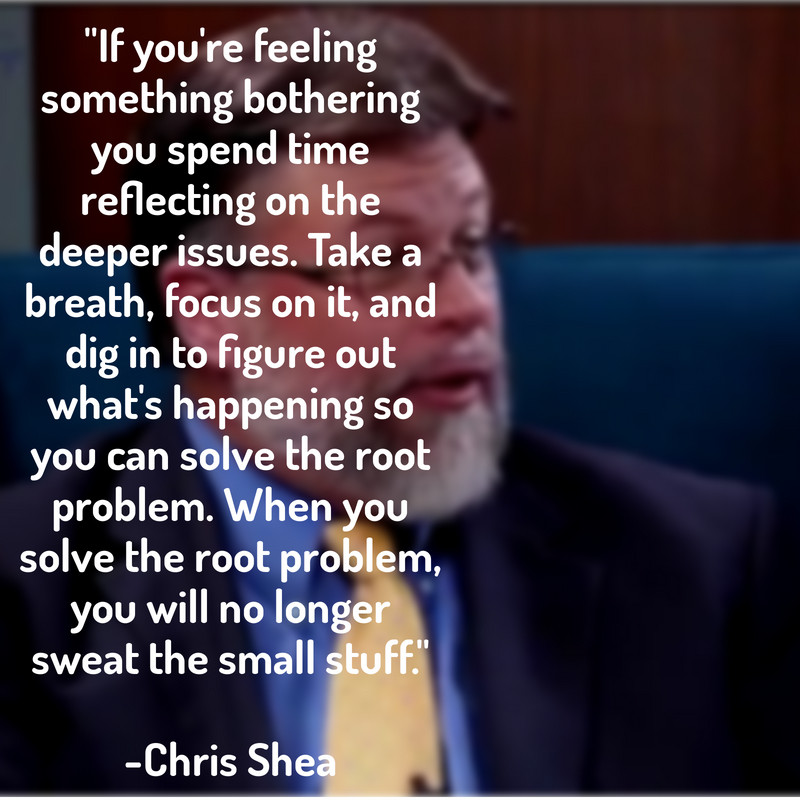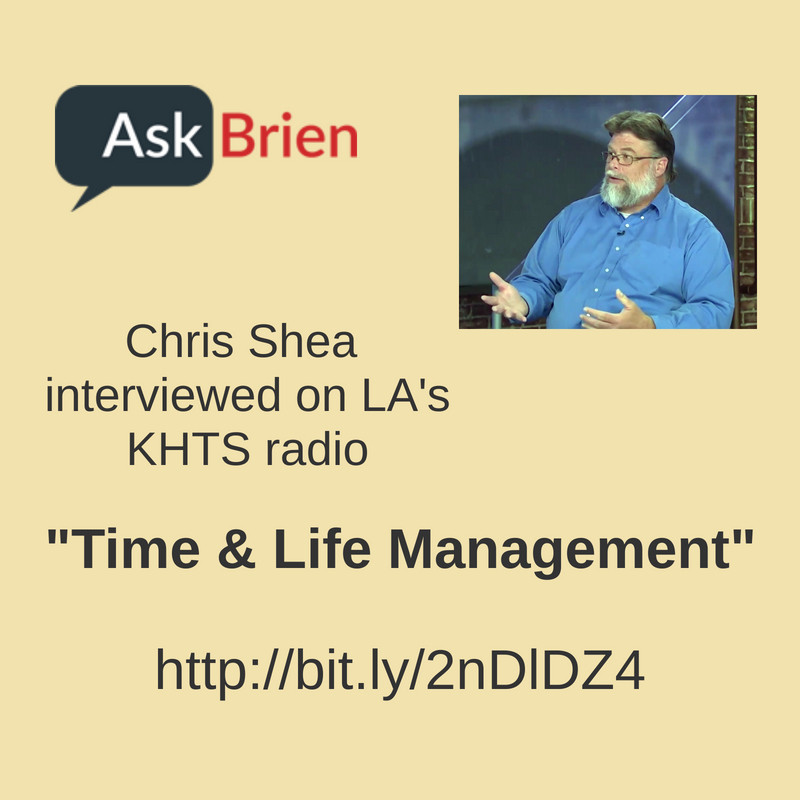Archive for August 2019
How To Not Sweat The Small Stuff And Find Happiness
Learning to not sweat the small stuff is a phrase filled with much wisdom. The important piece to this statement is learning to live in the moment. But how can we learn to stay more in the moment so that we don’t let the little things bother us so much that we lose our happiness? Here is my technique on how to not sweat the small stuff.
Step one is to actually reframe the question of how not to sweat the small stuff. If something is bothering someone, then it’s not “small stuff” to them. Judging another’s perception as to the gravity of a situation negates what they’re feeling and expressing. Although, I do hope to eventually get them to a point in the future where they can laugh at it and say, ah, that really was small.
But, to not sweat the small stuff, to get to the point of recognizing the smallness of some of our concerns, the question I’ll ask the client is “in the scope of everything going on in your life and in the world today, where does this issue fit?” If they’re honest with themselves and with me, they’ll understand the inner challenge in that question. Placing our perceived large stressor in judgment against the stressors of the world gains us a new perspective on our place within the larger community.
To clarify, I don’t typically advocate comparing one person’s troubles to another person’s troubles since we all cope in different ways, even to the same stressors. But in cases when an issue which is seemingly small yet perceived as large, then changing one’s perspective through comparison can be eye-opening and therapeutic.
When we sweat the small stuff and get stuck in our focus on anxiety, we need a strategy to guide us in healthy non-anxiety producing coping skills. The approach I use is what I affectionately call “the shiny object” strategy.
This strategy diverts our attention to focus on something different from that which is producing our anxiety, similar to shaking a shiny object in a dog’s or baby’s face to divert their attention to something else. Eventually, while diverted, we forget that which were focused on and which was causing the anxiety. This exercise guides us to reframe our perspective on ourself and our world.
Bonus: Download Chris Shea’s booklet on Life Coaching & is it for me? Click here to get it
I’ve spent a couple of decades working with people suffering from the disease of addiction, and one of their complaints to me is how their fellowship sponsor responds to them when they share they have a craving. They tell me they would call their sponsor and say, “I have a craving to use.” Invariably the sponsor would reply with something to the effect of, “Hey, did you watch the game last night?” The conversation would turn to sports, or whatever topic the sponsor wished to discuss. But it was invariably any topic other than the issue of the person’s craving to use a drug or drink.
My clients would complain that the sponsor isn’t helping when they reach out with a craving. They complain that the sponsor will talk about everything except for the reason they called, their craving. My question to the client, when they were done complaining, is always “did you use? Did you give in to the craving?” The client would always answer with one word, “no.” Isn’t that the goal the client wanted? They didn’t want to give in to their craving, and in the end, they didn’t.
This is a prime example of the shiny object theory. Keep focusing on your craving, and the craving will increase in intensity; stop focusing on your craving, and shortly, it will go away. In the same way, if I have a headache and I’m focused on my headache, my headache gets worse. If I have a headache but take care of that headache and return to my day’s activities, my headache seemingly goes away.
If someone decides to sweat the small stuff, remember that to them the issue they are sweating is not small. There is a reason they are sweating the issue, so don’t focus solely on the issue itself, rather, spend the time to learn why the issue is bothering the person the way it is.
If you’re feeling something irritating you, annoying you, bothering you, sticking with you, spend time reflecting on the deeper issues. Take time out, take a breath, focus on it, and dig in to figure out what’s happening so you can solve the root problem. When you solve the root problem, you will no longer sweat the small stuff.
{loadmoduleid 140}
Life Management Tips For A Happy Life
Life management became the focus of my live interview on the LA radio show “Ask Brien.” This business-focused show turned into a life coaching episode as the topic of time management easily and quickly moved into life management. Check out the full interview below.
The host asked me to define and talk about time management, especially for new entrepreneurs struggling to grow a new business while balancing their personal lives. I believe that time management consists of taking a holistic picture of what’s happening in the present moment, therefore time management is akin to life management. Time management is focusing on ways to get done what needs to now while planning for the next task.
Time management, like life management, is most effective when you approach your tasks and day with a sense of reasonable expectations. If your expectations of what and when you can accomplish tasks are unreasonable, you’re going to set yourself up for failure. The problem is you’re going to end up at the end of that day saying, not only did I not accomplish what I wanted to, but because I didn’t meet my expectations, there’s something wrong with me. This way of thinking will lead you into a downward spiral of negativity. Yet in reality, there might not be anything wrong with your approach except having too high of expectations which were totally unreasonable.
How does one create reasonable expectations? Well, you really have to get honest with yourself and figure out what you can realistically accomplish and stick to that. Often, especially with entrepreneurs who are starting out doing their own business, it’s a one-person show; they don’t have a team. Therefore, you get into the mindset that I’ve got to do everything by myself. So everything becomes a priority. So as not to burn out you really have to figure out what it is you can and can’t do.
Be honest with yourself about what you know, what you’re good at, what you can do, and what’s reasonable. Then you’ll need to come up with a solution for what needs to get done. That solution becomes part of your to do list. So I think one of the things we need to do in time management is to begin to understand those areas that I can work on and those areas where I need to find somebody else or some other business to make it happen.
Download Chris Shea’s “Business Coaching Services” booklet on why you should have Lifesjourney consult with your business: Click here to get it
Recently, I find most people are coming to me for life coaching, stating that their life is stressful, their job is the worst, or their relationship isn’t what they think it should be. This is what people are feeling, but what’s really going on is a sense of a lack of purpose in life being manifest or showing itself through stress and anxiety. People are asking the questions, “what is my life about?” “Where am I going with my life?”
An aspect of many people’s outlook that I’ve observed is a focus on the negatives of life, If you’re always looking at life as negative, you’re only going to see the negative. Those who are asking questions about the purpose in life are actually looking at the positive in life. They want answers or solutions, and by their nature, solutions are positive.
We need to change our perspective on that piece right there. There’s nothing wrong with questioning, but we also have to see life from a whole different perspective based on whatever is happening now.
We need to acknowledge what the negatives are in our life. I’m not saying to deny the negatives, that’s part of our reality, but we don’t want to just focus on them. So we can say, here are all the negatives going on in my life right now, but also, what are the positives going on in your life right now? There’s always something that you can find which is positive. I guide my clients on how to look at things differently so that they can not only find the positives but also to create the solutions.
Life management covers not only perspective and expectations but our outlook on life in general. Check out the entire interview for more information on my take on being a realist while practicing mindfulness.
{loadmoduleid 140}


